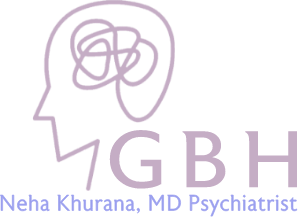
- December 17, 2024
ADHD – The Overlooked Link to Anxiety and Depression in Adults
Attention-deficit hyperactivity disorder (ADHD) is often associated with childhood, but it is a condition that frequently persists into adulthood. While much focus is placed on the classic symptoms of ADHD—such as inattention, impulsivity, and hyperactivity—less attention is given to its connection with other mental health conditions, particularly anxiety and depression. Emerging research highlights that untreated or misdiagnosed ADHD can be an underlying cause of persistent anxiety and depression in adults.
ADHD’s Impact on Emotional Health
Adults with ADHD often face challenges in managing emotions, staying organized, and meeting deadlines. These struggles can lead to chronic stress, feelings of inadequacy, and a sense of overwhelm, which may pave the way for anxiety and depression.
As highlighted in the article by Goodman and Rosner in Psychiatric Times, untreated ADHD can create a cycle where the symptoms of ADHD exacerbate anxiety and depression, making it harder to function in daily life. For instance:
- The inability to focus or complete tasks can lead to constant worry, contributing to anxiety.
- Emotional dysregulation, a hallmark of ADHD, can make individuals more prone to depressive episodes.
One Conversation Can Change Everything! Consult Dr. Neha Khurana for
The Misdiagnosis Problem
One of the most significant challenges for adults with ADHD is that their symptoms are often overlooked or misdiagnosed. Many adults report years of struggling with anxiety and depression without realizing ADHD was the root cause.
A study published in the National Library of Medicine emphasizes that ADHD in adults often presents with subtler symptoms, such as inattentiveness or emotional dysregulation, which are sometimes mistaken for generalized anxiety disorder (GAD) or major depressive disorder (MDD). Without proper diagnosis, these individuals may receive treatment for anxiety or depression without addressing the underlying ADHD, leading to incomplete or ineffective care.
Breaking the Cycle with Proper Diagnosis and Treatment
Identifying and treating ADHD in adults can significantly improve mental health outcomes.
Effective treatment typically involves:
- Medication: Stimulants and non-stimulants can help manage ADHD symptoms, which in turn alleviates associated anxiety and depression.
- Therapy: Cognitive Behavioral Therapy (CBT) is particularly effective for addressing the emotional challenges tied to ADHD.
- Lifestyle Adjustments: Time management strategies, mindfulness, and exercise can complement medical and therapeutic interventions.
- Goodman and Rosner’s findings in Psychiatric Times stress that clinicians must screen for ADHD when treating adults with persistent anxiety or depression. This comprehensive approach can lead to more personalized care and improved quality of life for patients.
What This Means for You
If you or someone you know has been battling anxiety or depression without finding lasting relief, it’s worth considering whether ADHD might be a contributing factor. A proper evaluation by a mental health professional is the first step toward uncovering the root cause and finding effective solutions.
At Georgia Behavioral Health, we specialize in understanding the unique challenges of adult ADHD and its impact on mental health. Our comprehensive approach ensures you receive the care and support you need to thrive.
One Conversation Can Change Everything! Consult Dr. Neha Khurana for
Conclusion
ADHD is more than just an inability to focus; it’s a condition that can significantly impact emotional well-being. By increasing awareness of ADHD’s link to anxiety and depression, we can ensure more adults receive the proper diagnosis and care they need to break free from the cycle of persistent mental health struggles.
For more information, visit Georgia Behavioral Health or schedule an appointment with our team of compassionate experts.
Citations
Goodman, D. W., & Rosner, A. J. (2024). ADHD: The Overlooked Cause of Persistent Anxiety and Depression in Adults. Psychiatric Times.
Adshead, G., & Blenkin, H. (2021). Emotional Dysregulation in Adults with ADHD: A Systematic Review. National Library of Medicine.
